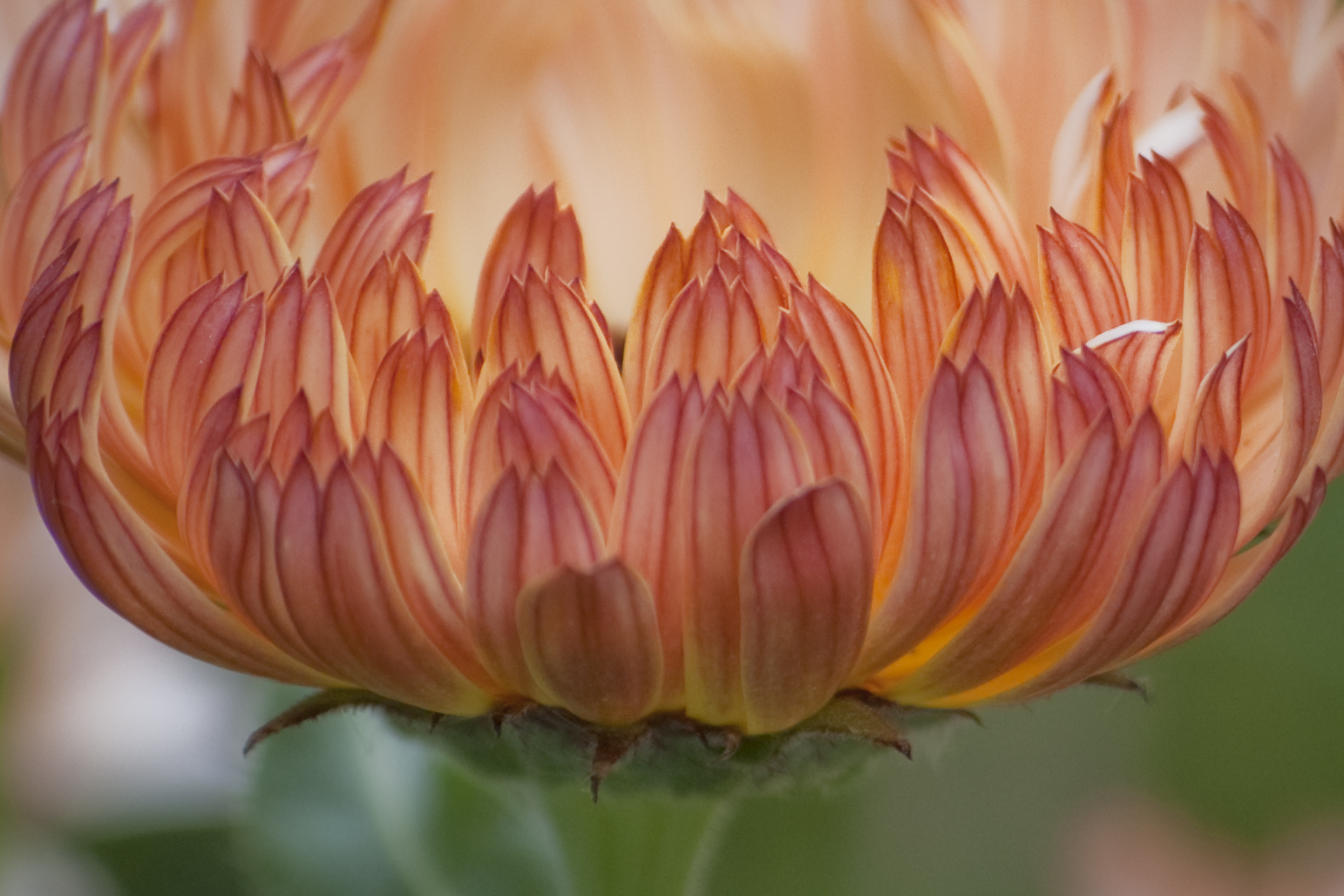A Veteran’s Story
By Jeff Nielsen
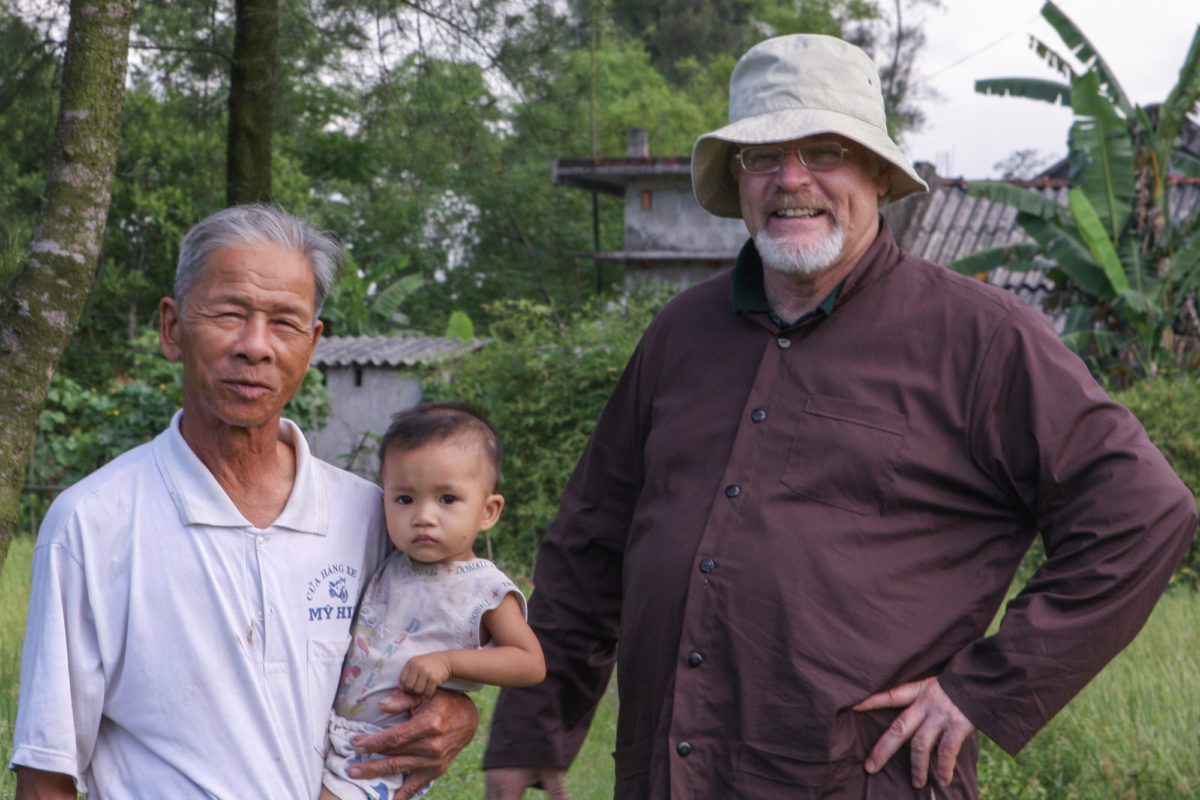
I first went to Vietnam as a nineteen-year-old Marine in late 1965. It was a big adventure. I was greeted by many children, lush green countryside, and happy people harvesting rice and fishing. It seemed the people always had smiles upon their faces and a playful curious attitude toward us Marines.
A Veteran’s Story
By Jeff Nielsen

I first went to Vietnam as a nineteen-year-old Marine in late 1965. It was a big adventure. I was greeted by many children, lush green countryside, and happy people harvesting rice and fishing. It seemed the people always had smiles upon their faces and a playful curious attitude toward us Marines. It was fun to engage with the children and villagers as we conducted morning patrols outside the barbed wire of our artillery post in Da Nang. I had no real fears on these patrols. On one occasion, I used a blasting cap from a disassembled hand grenade to assist children with their fishing. The blasting cap stunned the fish, and the children eagerly collected them up. They were amazed. I was amazed.
Many positive seeds were nourished during my first trip to Vietnam, as I interacted with a new culture. The hard-core stories of the war were on the edges. But, what began as an adventure in a strange, foreign land would later transform my life.
I volunteered to go back to Vietnam in the summer of 1967. That was the Summer of Love in the United States, but in Vietnam there was no Summer of Love. The war had escalated. I was assigned as a field radio operator with a Marine Infantry unit on the Demilitarized Zone (DMZ), much further north than where I had previously been stationed. The war was real here. There was a tremendous amount of suffering, pain, and fear.
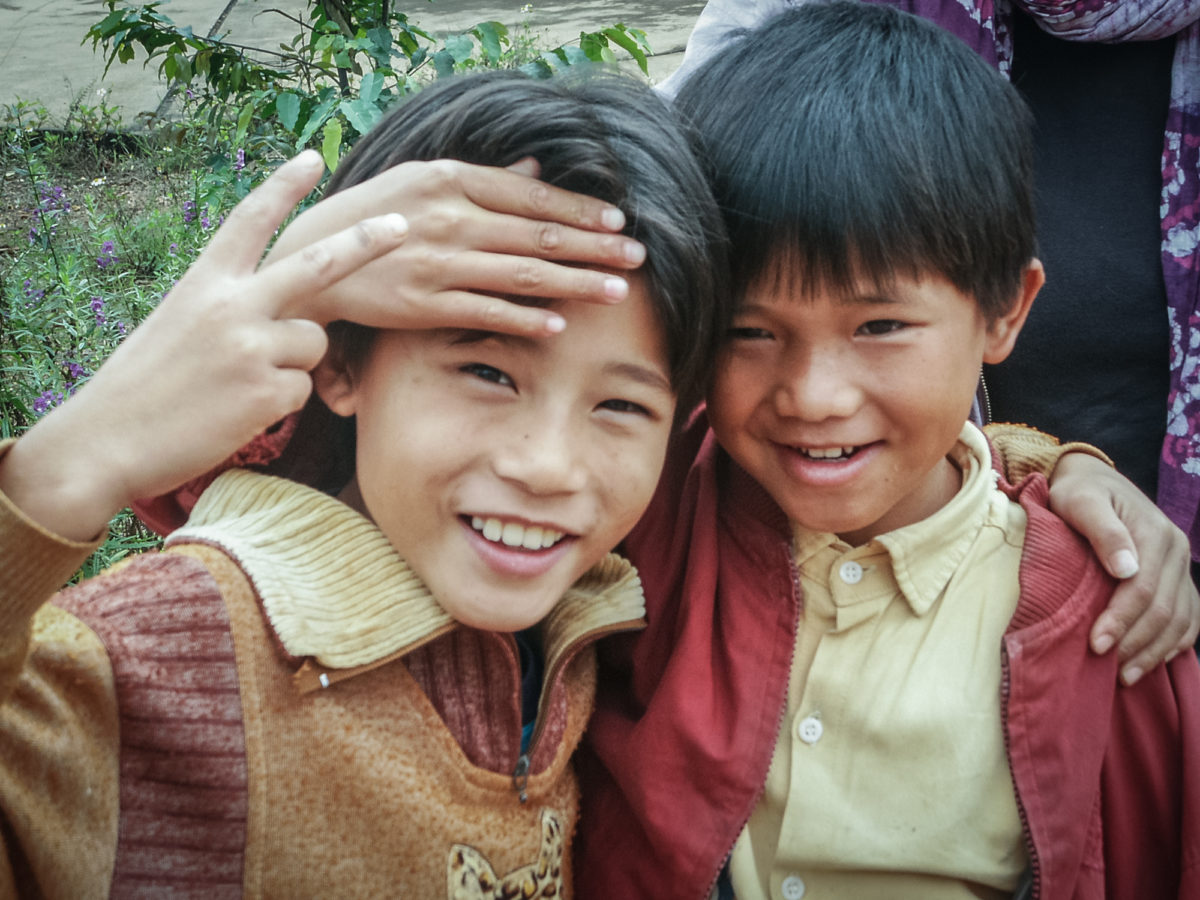
Our unit was under siege from the communist North at Con Tien, or “hill of angels.” I was witness to a brutal and vicious war. In the two weeks prior to and after my arrival, our unit suffered one thousand casualties and seventy dead at Con Tien. The DMZ was a battle of artillery duels, and the Marines were sitting targets inside their wire perimeter. Communist 122-millimeter rockets arrived regularly with howling screeches, creating mass scrambles for cover in red clay trenches. I was scared. There were no more smiling children. This was no longer an adventure. It was war with victims. Suffering and death were everywhere.
Marines lived in primitive, often muddy, unsanitary conditions. We bathed in rivers contaminated with the dioxin Agent Orange. Agent Orange was used to defoliate the jungle and deny the communists cover. The jungle countryside was also hostile. At night, we stood guard duty inside our wire, and rock apes, or monkeys, roamed outside the wire in the jungle. These monkeys can weigh over one hundred pounds, and at night they can resemble a person. Occasionally they, too, would throw rocks at our defensive perimeter. Everyone outside the wire was a potential enemy. Whatever moved was a potential rifle target. We were prisoners within our own barbed wire.
My job as a trained field radio operator was to maintain communications among the small units within our battalion, the individual line companies, and the battalion headquarters. This meant I had to go into the field or bush on a regular basis with fighting units. It was my duty to carry a twenty-five-pound field radio on my back, along with my own equipment: food (Crations), a shovel for digging in at night, two canteens, a pistol, and an M-16 assault rifle with 175 rounds of ammunition. Many Marines got heat exhaustion walking all day in the one-hundred-degree tropical jungle.
One of my assignments was to work as a relay operator on a prominent hilltop outpost called the Rockpile. There were ten of us up there. The Rockpile was accessible from the ground only by helicopter. It was the highest peak along the DMZ. There I provided clearance for aircraft and ground resupply convoys. I could observe and listen to most major military action from my nine-hundred-foot perch on a crag of rock.
From the Rockpile I was able to witness our weapons of mass destruction: the B-52 bombers with their two-thousand-pound bombs. These bombs would relentlessly pound the earth into submission. Fires erupted on the horizon, and the ground shook with enormous rumblings. Other aircraft also attacked the earth with Agent Orange. Agent Orange not only destroyed the jungle, but it also produced many major agricultural problems for the local farm people who lived off the bounty of the Earth. It also destroyed the farmers’ health. It was an evil tool of war that continues to create a lot of suffering.
One time I was giving radio clearance for a CH-46 cargo helicopter to pass over the Rockpile. I gave the signal. I looked up a second later and there was only a wisp of smoke where the helicopter had been in the sky. A communist gunner had fired a fifty-caliber machine gun accurately. The CH-46 had been flying low because of visibility and low ceiling in the early morning humidity. Eighteen marines perished. I was on the recovery team. We found one survivor, barely alive, and it looked as if all the bones in his body were broken.
I volunteered toward the end of my tour to accompany a resupply convoy to Khe Sanh. I was standing in the lead vehicle. On this occasion the communists must have been only a few feet away, hiding in the thick elephant grass that lined the narrow one-track highway, when I passed. Minutes later we heard their distinctive AK fire, four or five vehicles back. They had waited to open fire until they had more numerous targets. Sixteen Marines died on flatbed trucks that day. The next day we revisited the area. The dead lay where they had been killed.
My friend Arthur and I drew straws after that attack to see who would accompany the new lieutenant. I won the draw and accompanied the more experienced captain. Arthur was killed accompanying the less experienced lieutenant, with a few days left in his tour of duty. I visited with the captain not long ago, in 2006. He was dying of Agent Orange-related cancer. I attended his funeral at Arlington National Cemetary.
I was unhappy in Vietnam. There was so much suffering all around, daily. The only escape was booze during the intermittent R&Rs.* I wanted to go home to the USA. I wanted to begin a new life. But I now know that home is where you are; it is up to us to create the conditions for our own happiness.
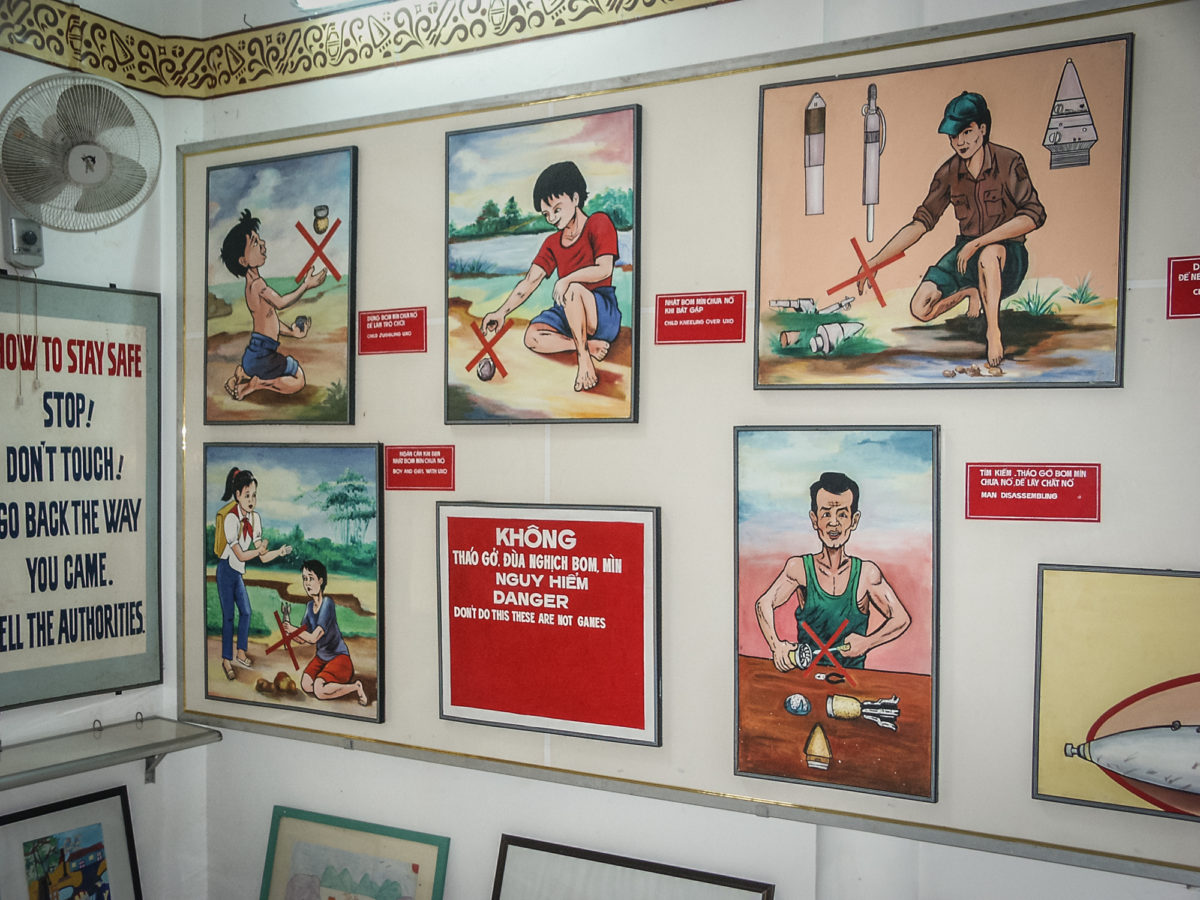
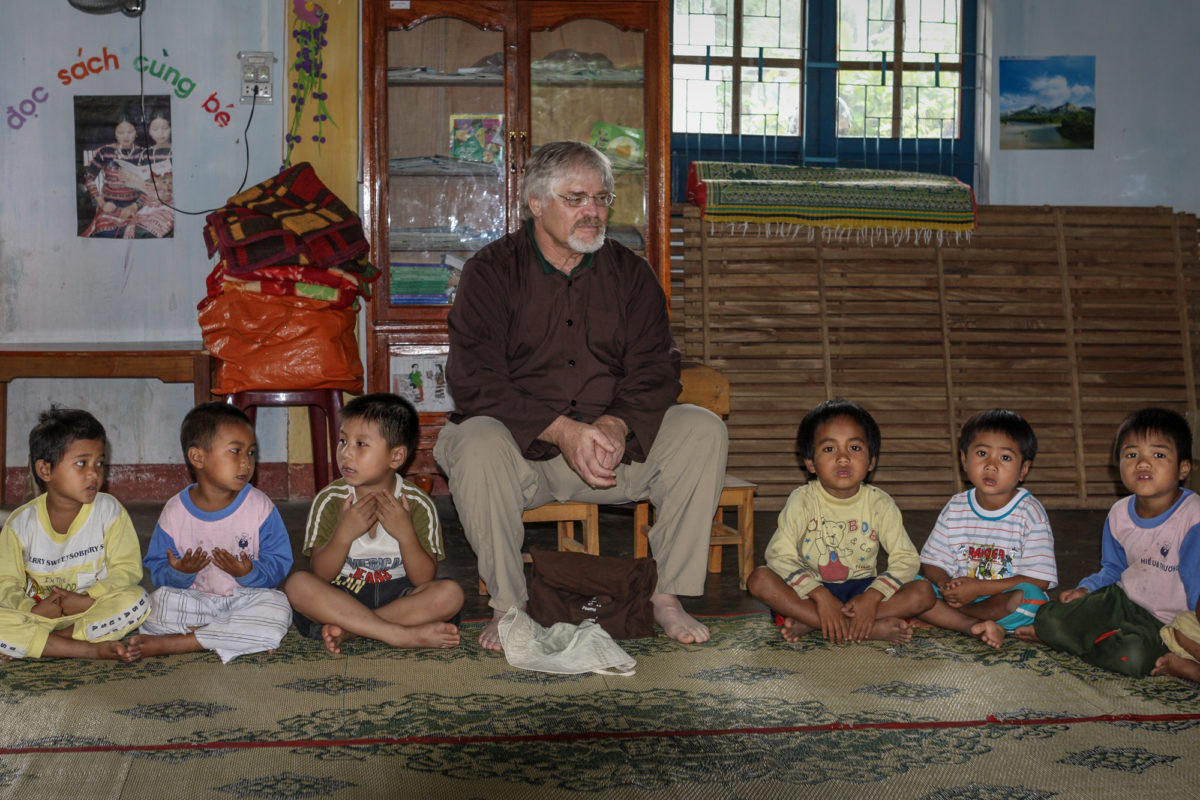
A Difficult Journey
I survived Vietnam. I was lucky. But it was a difficult journey home. There was guilt leaving Vietnam, as our brothers were still there facing the suffering. In Okinawa, my friend Norm and I received word that our medic had been killed. Norm and I drank beer to excess every night during our transition back to the United States. We always ordered three beers––one for Norm, one for me, and one for the doc who was killed.
Upon arrival in San Francisco, I was admitted to the Oakland Naval Hospital. My “jungle rot” skin disease was severely infected from cuts and constant humidity. I was bandaged in gauze, like a mummy. I could not get discharged from the Marines in my condition, but my friend Norm was okay to go. It was a difficult farewell. I felt alone. I had lost the doc and now Norm.
In July 1968, I was discharged and left for home in Connecticut. There were many hurdles to face. I had to finish where I’d left off in high school. There were very few job prospects, as I had little training other than with a field radio and an M-16 rifle. Additionally, I had drinking and emotional problems: anger, resentment of my peers that didn’t go to war, and poor family relationships. The American culture was in a political turmoil. I felt the troops coming home were blamed for this war. This made me even angrier and more resentful.
My wife and I experienced many of the residual effects of the Vietnam War, and our marriage ended after eighteen years. In my thirties, I had a heart attack and two types of cancer, all related to Agent Orange. My wife had five miscarriages, also related to Agent Orange. My doctor advised us to stop trying to conceive a child. Later, we were denied adoption due to my past heart condition and limited family support.
In 1982, I went with a friend to the opening ceremony of “the Wall” in Washington, D.C. Of the fifty-eight-thousand-plus names on the Wall of American Soldiers Killed in Vietnam, most were in their early twenties––all with so much more to live. On the other side of the world, in Vietnam, many, many more were killed in this senseless war. Some Vietnamese people have told me that the hills in northwest Quang Tri Province cry at night with the hungry ghosts of the war.
Many Conditions for Happiness
My story gets better. Although there are many seeds of suffering in me, there are more than enough conditions for happiness.
I was first introduced to the teachings of Thich Nhat Hanh at a Veterans Retreat at Omega Institute in New York in the 1990s. I attended on scholarship. During this retreat, the seeds were planted; I began to look more deeply into the roots of my own trauma and guilt. I began to rethink my Vietnam experience.
I struggled with my education, hindered by my drinking. However, I completed college and earned three masters’ degrees, in counseling, educational psychology, and clinical social work. I began the course of study in social work, with a focus on international issues, in the late nineties after taking the Five Mindfulness Trainings. The seeds for my aspiration for the Fourteen Mindfulness Trainings were planted. I feel fortunate to have had such wonderful teachers as Lyn Fine, Patricia Hunt-Perry, and Roberta Wall on my path.
My studies took me to Vietnam. Since 1999, I have been to Vietnam six, soon to be seven times:
1999: I did an independent study on post-war issues as a graduate social work student. I fell in love with the country and people again, as I had in 1965 with the children of Da Nang. I learned to sing songs.
2000: I completed an internship with Asian Family Services in Hartford, Connecticut. I returned to Cambodia, Laos, and Vietnam with a group of ex-refugee Southeast Asian staff to explore orphan issues.
2003: I returned to Vietnam with the non-governmental organization PeaceTrees Vietnam.** Its mission is to reverse the legacy of war by clearing unexploded war bombs and planting trees in their place. I was told last year that eighty-two percent of Quang Tri Province is contaminated by these unexploded bombs. Children and farmers continue to die.
2005: I returned with Thay and friends and became acquainted with the root temple in Hue. My practice deepened. I took a small group to visit PeaceTrees Vietnam. On my return, I was ordained into the Order of Interbeing by Thay in Massachusetts. I received the name True Pure Peace.
2008: I attended Vesak in Hanoi with Thay and the Sangha.
2013: Now retired from work, I took a course, Teaching English to Speakers of Other Languages. I went to Vietnam for three months with my wife, June, and taught English part time as a volunteer. I taught young children in a primary school in Hue. We sang many songs. Following that, I went on the Roots of Buddhism in Vietnam Retreat with Trish Thompson.
2014: I leave in a few weeks for our second mindfulness retreat in Vietnam with Ms. Thompson. Following this retreat, I will tour Vietnam with Veterans of Peace. We plan to raise money and create awareness about issues of unexploded bombs and Agent Orange.
I am now remarried and have three wonderful stepchildren. I retired after twelve years as a psychiatric social worker on a mental health unit within a maximum-security prison, and five years as a post-traumatic stress disorder (PTSD) therapist, counseling returning war veterans with the Veterans Administration.
I am writing this in Southeast Asia, where the warm breeze flows, the air is fresh, the sun is out, birds chirp, local fruit is succulent, orchids are in blossom, and there is an absence of war. I look around at many smiling faces and say to myself, “Thank you.” I have gratitude for my many conditions for happiness.
Our practice continues to transform my life. I take my refuge with the Buddha, Dharma, and Sangha. The Five and Fourteen Mindfulness Trainings continue to be my liberation from suffering. I write this for all my friends on the path of understanding. May I be free from suffering. May you be free from suffering. May I be happy and well. May you also be happy and well.
*“R&R” is military slang for rest and recuperation, rest and relaxation, or rest and recreation.
** For information or to support PeaceTrees Vietnam, visit www.peacetreesvietnam.org. To support efforts to restore the environment and neutralize the effects of the war, visit www.landmines.org.vn.
Jeff Nielsen, True Pure Peace, practices with the Heart of the Valley Mindfulness Practice Center in Norwich, Vermont. He lives with his wife, June, and Jack Russell terrier, Mr. Watson. He is willing to accept any donations towards resolution of the issues of unexploded bombs and Agent Orange in the name of Veterans for Peace, Vietnam Chapter. He can be reached at jeffreyrnielsen@msn.com.

